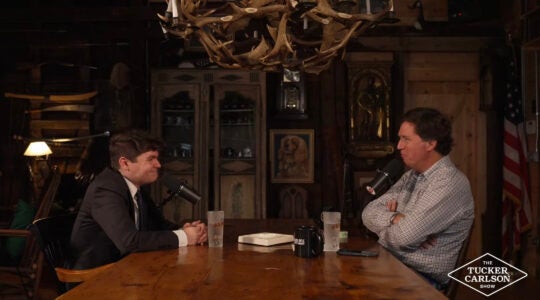From The New York Times. What’s a new, or soon-to-be-Jew, to do on Christmas? Wrestle with identity issues, apparently.
For thousands of people who convert to Judaism, Christmas is a difficult day of balancing what was once intimately theirs but now represents, in some ways, the essence of what they are giving up. The holiday brings up questions that often have less to do with theology than with culture and custom. Siblings wonder: Can we still give you gifts? Parents ask: Can I still fill your stocking? If the answers are no, does that signal something akin to betrayal?
For Jocelyn Getgen, a lawyer who is marrying a Jewish man next month, the completion of her conversion after Thanksgiving left her feeling strangely alone as she stared at the endless Christmas trees while walking down Broadway. For Juan Diego Santamaria, a 40-year-old court reporter, becoming Jewish meant abstaining from the roasted pig his family served at Christmas dinner in Elmhurst, Queens. And for Aliza Hausman, 29, it meant going with her sisters to see “Avatar” on Christmas Eve, movies having become a new family tradition since she converted in 2006.
Rabbi Leana Moritt, who has taught conversion class at the 92nd Street Y to more than 500 people over the past decade, said that many people speak of a loss of Christmas. Erin Leib Smokler, who tutors people studying for conversion and is working on a book about the subject, noted that conversion often causes separation in families, and said “Christmas becomes that divide.”
“It is one of many issues where they have to negotiate the thicket of multiple communities,” Ms. Smokler explained. “It is an opportunity to identify with their newly chosen community. They begin to appreciate the Christmas season as being a part of the minority.”
JTA has documented Jewish history in real-time for over a century. Keep our journalism strong by joining us in supporting independent, award-winning reporting.





